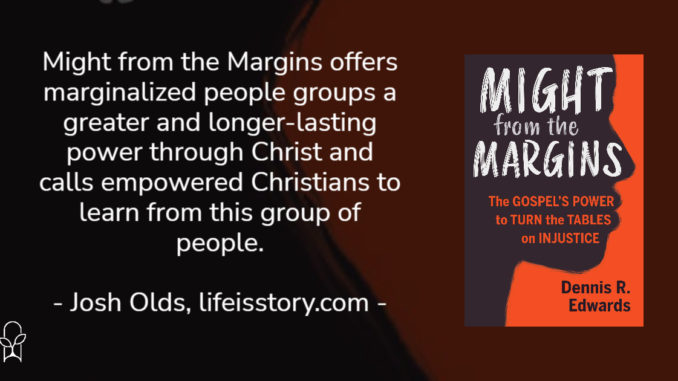
Published by Herald Press on September 8, 2020
Genres: Non-Fiction, Christian Life, Racial Reconciliation
Buy on Amazon
Goodreads

God has empowered marginalized Christians to transform the church. The power of the gospel is often most visible among those who have been the least respected, including racial or ethnic minorities, people with disabilities, women, and people who have been displaced from their homeland. Yet in many faith communities, these are the same people whose leadership gifts are least likely to be recognized. But the power of the gospel comes from God, not from other humans. This book is a passionate affirmation of the power already present among marginalized Christians and a call to recognize and embrace this power for the sake of helping the church become more like Christ. Marginalized Christians are already changing the face of the church. Will we embrace their power to change the church’s heart?
The story of the early church is the story of a marginalized and oppressed people. It should come as not surprise, then, that the Gospel message is quite concerned about the presence of injustice and highlights the power of marginalized people. Written by New Testament scholar Dennis Edwards, Might from the Margins shows how the church finds strength through recognizing what God is doing through marginalized Christians.
Each chapter of this book is hard-hitting and worth a summary in its own right. The Power of a Diaspora People talks about how minority Christians have influenced and shaped Christianity outside of their homeland. The Power to Discern Injustice focuses on how listening to marginalized Christians helps us discern the pervasiveness of white supremacy and patriarchy with Christianity. The Power of Anger is a very good chapter about the positive use of anger and the righteousness of anger as a response to injustice.
Edwards’ rhetoric is powerful and compelling. For the marginalized, this book is a reminder that they are not powerless and, indeed, come much closer to the love and presence of God than those empowered. For those Christians in cultural power, it is a prophetic indictment that we have ignored those on the margins for our own gain and thus have lost this power that resides with marginalized communities.
One thing of note is that Might from the Margins pretty much has only ethnic marginalization in mind, remaining silent on other examples of marginalization, such as LGBTQ+ people. I think it is worth recognizing, even if Edwards does not feel like it is within the scope of his work, that much of what Edwards reveals about the Gospel’s power in the lives of marginalized is true as well of those in the LGBTQ+ community.
Might from the Margins is a unique look at the empowerment of marginalized peoples. It shows how marginalization has inculcated sensitivities, proclivities, discernments, and movements that help spread the Gospel. This does not mean we leave a marginalized people in their oppressed state, or that we justify oppression on the basis of how those who overcome end up stronger. Rather, it shows how God is especially at work among those whom the world deems on the margins of life. It’s a reflection of the New Testament, which constantly uplifts women, the poor, Samaritans, and others thought to be far from the center of power. Though far from the center of cultural power, Might from the Margins offers marginalized people groups a greater and longer-lasting power through Christ and calls empowered Christians—read white American evangelicals, for the most part—to learn from this group of people.
